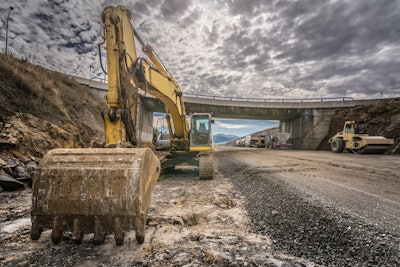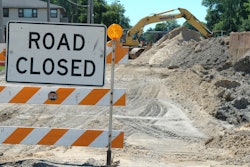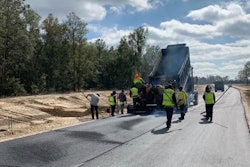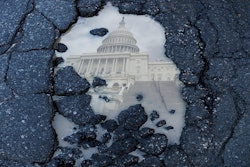
Since 1998, America's infrastructure has earned consistent D-grade averages from the American Society of Civil Engineers (ASCE). These consistently low grades for our roads, bridges, waterways and more have put the United States economy in an unfortunate position.
The ASCE has released a new report, Failure to Act: Economic Impacts of Status Quo Investment Across Infrastructure Systems that examines the implications of low infrastructure grades for America’s economic future. The report focuses on the incremental and gradual decline of infrastructure systems under current investment scenarios and shows that the impacts to our nation’s economy are exacerbated over time as needed investments are deferred.
Conversely, findings show that the positive economic impacts of infrastructure investment reverberate through every sector of the economy. Reliable, modern infrastructure is the underpinning of economic growth across communities.
"When we fail to act on infrastructure, we continue to pay the price," Thomas Smith, executive director of ASCE said during the report release call. "Drivers get stuck in traffic, our systems are unreliable and the cost to do business all over the country increases and those costs get passed on to Americans."
The report indicates that total documented cumulative investment gap between projected needs and likely investment in these critical major infrastructure systems is more than $2.6 trillion by 2029, and more than $5.6 trillion by 2039. The long-term effects associated with infrastructure investments, long known to be a public safety issue, has a cascading impact on our nation’s economy, impacting business productivity, GDP, employment, personal income and international competitiveness.
Overall, if the investment gap is not addressed throughout the nation’s infrastructure sectors, by 2039 the economy is expected to lose more than $10.3 trillion in GDP. Losses are expected to include $2.4 trillion in exports, while imports into the U.S. economy will decrease by about $1.8 trillion, resulting in a $4 trillion loss of trade, and a further increase of $626 billion in our national trade deficit. As a result of this underperformance, job losses will mount annually, and in 2039, the U.S. economy is predicted to support 3 million fewer jobs than under baseline conditions. The report estimates that about 47% of the jobs lost in 2039 will be in high wage and high production jobs including manufacturing, finance, insurance and real estate, professional services and healthcare.
“America’s infrastructure bill is overdue, and we have been ignoring it for years,” said Smith. “There’s no better way to jumpstart the economy, while also lessening the financial burden on businesses and families, than by making a down payment on our infrastructure now – transit systems, bridges, water treatment plants and the grid - to ensure these systems are sustainable, resilient and safe for communities across the nation.
Importantly, the report finds that if infrastructure investment continues at the current pace, American residents and businesses will suffer. The expected impact for every household in the U.S will be an average loss of more than $3,300 per year in disposable income through 2039. That's nearly $60,000 in money lost from evert family.
Hope for Infrastructure Under Biden Administration
The most important finding of the report is that infrastructure deterioration is progressive, and the economic effects will dramatically escalate over time from a business as usual approach. The good news is that much of the economic declines from worsening infrastructure, particularly those forecast from 2030—2039, can be prevented with thoughtful investment programs that address documented deficiencies.
The Biden transition team has indicated they are ready to move on infrastructure very quickly and this leadership on a national level will ensure infrastructure funding will receive the support it needs to get something done, and hopefully quickly.
“People are looking or ways to bring us together. Infrastructure has been an area where there is bipartisan support in terms of the problems, not so much the solutions but we’re working on that,” Earl Blumenauer, D-OR said during the report release call. “Infrastructure is a perfect place to reach across the aisle and engage people. We need to get more money in to the economy and get the legislation moving and I hope that's one of their first points of business.”
However we still need to deal with the financing, something the Trump Administration had failed to do. The 117th Congress will be faced with how to fund an infrastructure program that is sustainable for the future and the gas tax may no longer be a part of that system.
"We don't need to raise revenues quickly, but we need to have a plan that will raise money over the next several years," Blumenauer says. "This is an opportunity to recognize that the system we have now is slowly coming apart. Funding our surface transportation funding based on gallons of fuel consumed is on a downward spiral. We can't sustain that system. We have to move away from a gallons consumed model and get rid of the gas tax. A new plan will have a path that makes it clear we're going to eliminate it and replace it with something that is more fair and is sustainable. People hate it and we should commit the next 10 years to getting rid of it with something that is more fair."
Blumenauer says he would like to see an investment in our infrastructure of $2 trillion dollars that will assist every state and every community from the federal the investment. Since infrastructure touches every aspect of our lives, he says an infrastructure package needs to be wholistic and inclusive.
"Everything doesn't need to happen all at once," he says. "If people see there is an effective federal partnership where we are working together, we can craft something where everyone can benefit and everyone can get on board. Areas with less capacity would get a price break and areas that are causing the issues may pay a little more. Everyone benefits from a system that is fair and sustainable over time.
"There is an opportunity to do something that is broad and inclusive and gives people across the country, and in both parties, opportunities to engage. Infrastructure is a mechanism to bring us together and I hope we can take advantage of it."
The asphalt industry have been tireless advocates for the infrastructure funding our country so desperately needs, however there is a longterm cost to doing this and our Congress needs to be prepared to help move us forward. Without federal support, worsening conditions are likely to accelerate and our country can't afford to wait.
"We have a crisis we have to solve, this is a way to do that. We have to find people jobs and put them back to work. This is a way to do that. Infrastructure investment checks all the boxes to get the economy moving again," Smith concludes.




















